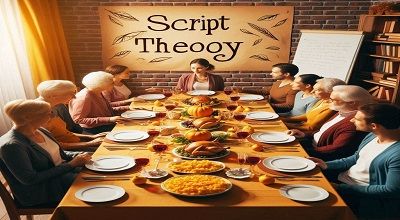Script Theory
Script theory is a psychological concept that describes how people store and use knowledge about typical situations and events. A script is a mental representation of a sequence of actions, roles, and expectations. That is associated with a particular context. For example, when you go to a doctor’s appointment, you have a script in your mind of what usually happens.
You check in at the reception, you wait for your name to be called. Now you follow the nurse to the examination room, you answer some questions, and you get examined by the doctor. Get a prescription or a referral, you pay the fee, and you leave. This script helps you to understand and predict what will happen next and to behave appropriately in that situation.
Scripts are also used in natural language understanding systems. Which are computer programs that try to understand and generate natural language. Scripts help these systems organize their knowledge base in terms of the situations that they should understand and respond to.
For example, a system that can answer questions about movies might have a script for a typical movie plot. With elements such as characters, settings, conflicts, resolutions, and genres. This script helps the system to interpret the meaning of the questions. And the information in the movies and to generate relevant and coherent answers.
Script Theory of Learning
The script theory of learning is a psychological theory. That explains how humans store and use knowledge based on patterns or programs called “scripts”. The Scripts are sequences of events and actions that are linked by emotional responses or effects. Scripts can help us understand stories or situations by filling in missing information or making inferences. Scripts are learned and established early in life and influence how we approach social interactions.
For example, when we go to a restaurant, we follow a restaurant script that tells us what to do and what to expect. We find a table, sit down, wait for the waiter to take our order, eat our food, pay the bill, and leave. We do not have to think too much about these steps because they are part of our script. Now we also know how to behave if something unusual happens. Such as the food being late or the waiter being rude. Because we have explanatory processes (XPs) that help us deal with anomalies or creativity.
Final Words
Script theory was first introduced by Silvan Tomkins in 1954 as an extension of his affect theory. But was further developed by Roger Schank in the late 1970s. Schank proposed that all memory is episodic, meaning that it is organized around personal experiences rather than semantic categories. He also suggested that scripts are just one type of knowledge structure, along with plans and themes. That helps us process language and higher thinking skills. Schank applied his theory to various domains, such as storytelling, intelligent tutoring, and educational software.
